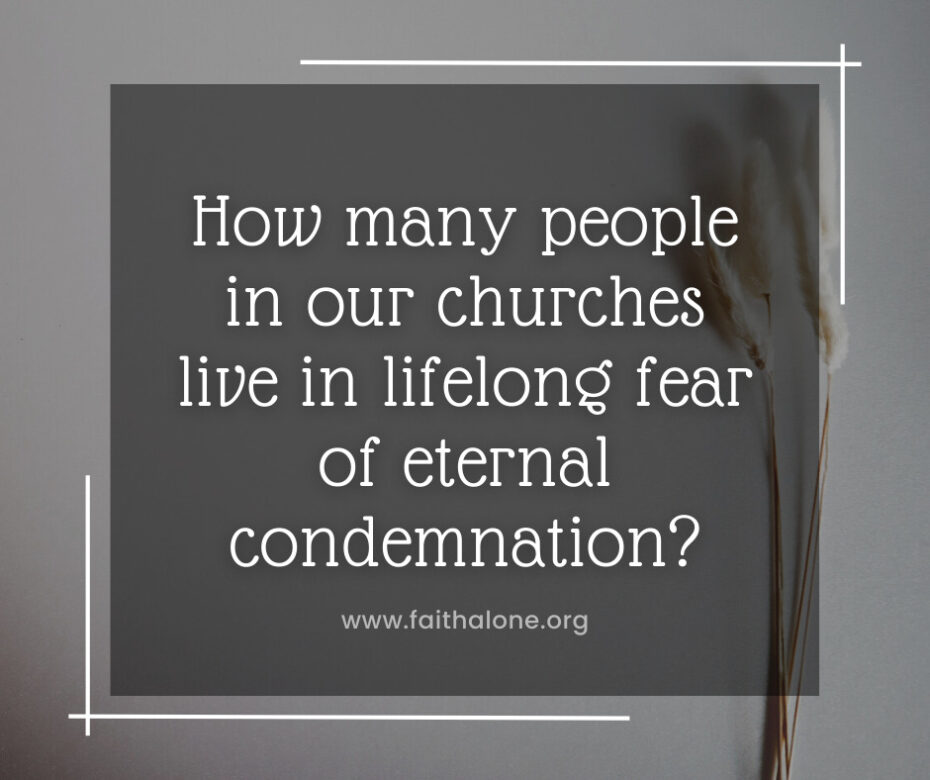Recently GES held a regional conference in Tallahassee, FL. The audience was made up of primarily Spanish speaking people, although most were bilingual. One of the speakers was a local Spanish speaking pastor, Dr. Marino Martinez. He spoke about the history of Christianity in Spanish speaking, primarily Latin American, countries. He gave a good overview of this history, summarizing it in a way that I had never considered.
The Catholic Church has had a stronghold in these countries for around 600 years. Marino pointed out that the leadership of the Catholic Church appealed to the elites in those countries. The leaders were well educated, and the church became very wealthy. The church was able to control the population through fear. Especially, when it came to eternal salvation. This salvation could only be found through the church, and then only at the cost of obedience to what these elites said. In the Catholic Church, there was no assurance. The same is true today.
Around 100 years ago, Pentecostalism gained a stronghold in these countries. Missionaries came from the west with its gospel. This movement was different from the Catholic Church in that it appealed to the lower classes. You did not have to be one of the elites to pastor a church or be a leader in this movement. Churches sprang up in the poor parts of cities. These churches were independent. The masses were attracted to the music, emotionalism, and the open participation in the services. There was much more equality in the Pentecostal practices than in the Catholic Church.
But the Pentecostal movement did have something in common with the Catholic Church. It did not offer assurance, either. The multitudes who attended, and still attend, these services are told they can lose their salvation for various reasons. Like their Catholic neighbors, they live in fear of spending eternity in the lake of fire.
In more recent times, Reformed and Lordship Salvation theology have made tremendous inroads into these countries. The books of John MacArthur, for example, are everywhere. They are translated into Spanish. Marino said these books and this teaching have strong appeal to the middle class. Spanish speaking pastors, even though they do not belong to the elites of their countries, nonetheless, have the opportunity to attend schools, including seminaries. Reformed theology and Lordship Salvation are commonly taught in such institutions. This theology is often seen as the theology of those who want to study the Bible. The Biblically educated pastor often immerses himself in such teaching.
Of course, Lordship Salvation does not provide assurance, either. It has that in common with both the Catholic Church and Pentecostalism. It teaches these pastors, and the pastors teach their congregation that they must continue in good works until the end of their lives in order to make it into the kingdom of God. This perseverance will indicate if they are really saved or not. Since nobody can know whether he will do that, nobody can know for sure in this life if he really is a child of God.
I found the way this pastor at the conference put it fascinating. Marino described the main pillars of the history of Christianity in these countries. He pointed out that whether a movement’s major appeal was to the elite, the poor, or the middle class, they all denied assurance to the people who heard their messages. For 600 years, the majority of people attending churches in those countries were fed a constant diet of fear and insecurity.
Of course, there were those who believed the message of grace during all those years. Some were evangelized by missionaries, family, and friends who were clear on the gospel, and they came to faith. Some heard in their churches the reading of verses like John 3:16 and believed the simple message (even though the priest or pastor would not explain it clearly). They heard Jesus say to the woman at the well that if she believed in Him for eternal life, she would never thirst for it again (John 4:14). At that moment, they knew they had eternal life and it was theirs forever.
But how sad is it to realize that for the vast majority of these believers, they were subject to another gospel, a gospel of fear, for 600 years? They would go to their local churches and be told that the good news of God’s grace that they had believed was not true. This was also the case for all the unbelievers during these years who listened to these false gospels, hoping to do enough works to give them some measure of hope that they just might be good enough to earn their way into the kingdom or show that they were believers after all.
This conference was an encouragement. Almost all the attendees came from countries where their ancestors lived under a message of lifelong fear of eternal condemnation.
How wonderful it is for us to have the privilege of proclaiming the truth of eternal life by faith in Christ through God’s grace. God’s grace triumphs over fear.


